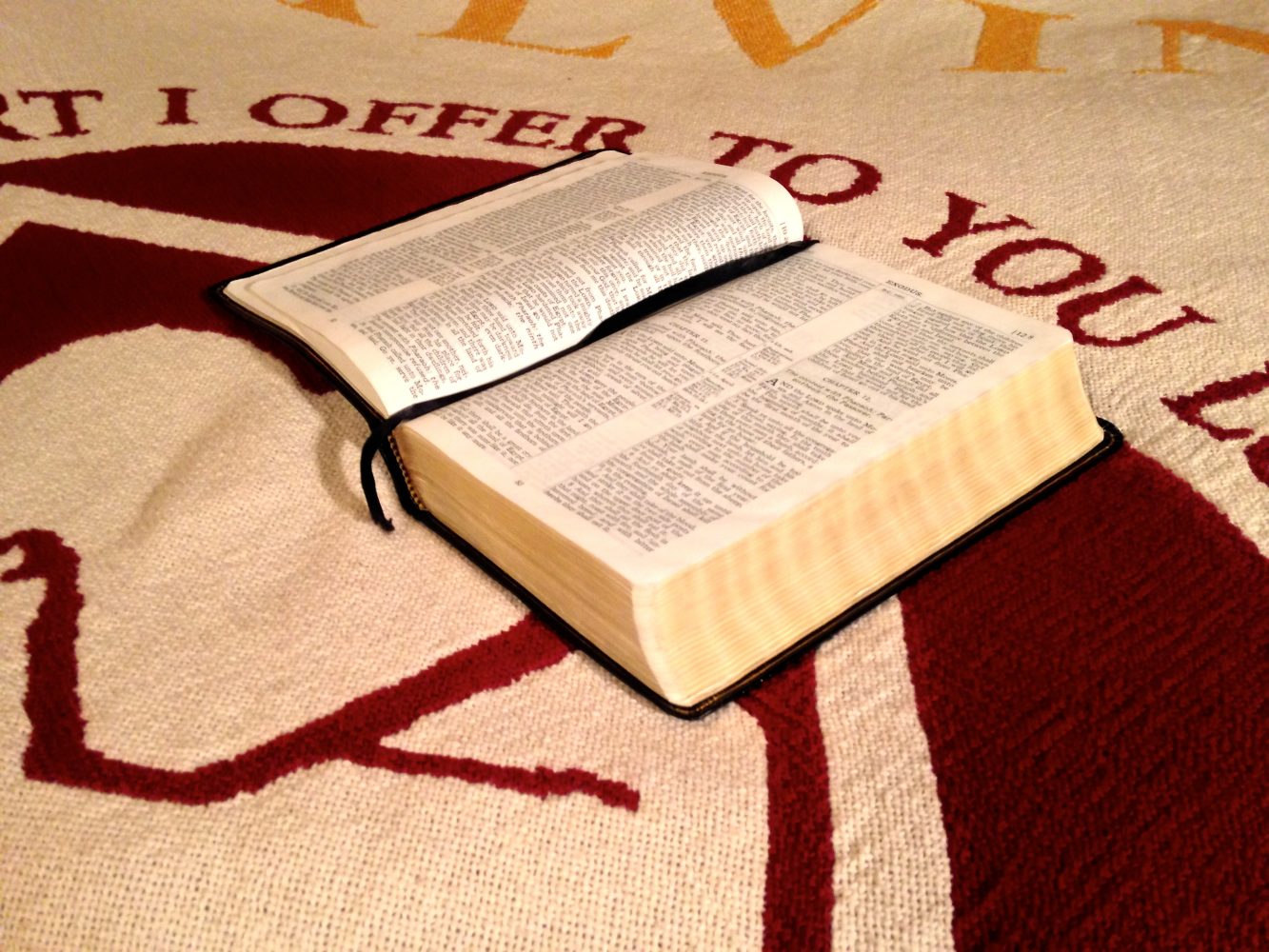A few weeks ago, we read the story of the Passover in our campus-wide Exodus Bible study. When God explains this final plague to Moses, he makes a point of distinction. He wants Moses to know that “the LORD doth put a difference between the Egyptians and Israel” (Exodus 11:7).
And the Lord does.
All those with blood on their door frame are saved and those without the blood suffer God’s wrath. It’s a clear line.
As we studied the passage, I wondered: If God clearly distinguishes between the saved and those under his wrath, why are we so bad at it?
Why are we at Calvin so bad at drawing the line between the saved and the lost? Between Christian and non-Christian?
“We” is a wide term, I know. There are plenty of people at Calvin who speak about salvation in clear terms. Nevertheless, it seems like, as a whole, the Calvin community is unnecessarily ambiguous when it comes to the crucial issue of salvation.
Calvin has a big view of the gospel. At Calvin, we are continually reminded that God cares about every aspect of the world and wants to redeem it all. This way of thinking has stretched me and I have a better understanding of God’s work in the world because of it.
That being said, I think that this view of the gospel can be so big and difficult to lay hold of that we lose sight of individual salvation within it.
When is the last time you heard a clear, foundational presentation of the gospel in chapel? When is the last time you heard it mentioned that there are people in the room who are not saved?
The gospel isn’t only about individual salvation but individual salvation is certainly a big part of it.
After all, for the grand vision of God’s coming kingdom to offer us hope as individuals, we have to get connected with the King.
It’s a simple process on our end, really. God lays it out for us just as plainly as he laid out the Passover instructions for the Israelites. While they had to sacrifice a lamb and apply the blood to their door frame, our Lamb has already sacrificed himself. We need only to call on him and ask him to apply the blood to our souls.
“For whosoever shall call upon the name of the Lord shall be saved.”
Salvation is a question of whether you’ve ever done that.
And just like the blood on the door frame of the Israelites, there’s no halfway point, no ambiguity about it.
It’s not a matter of “growing up in the faith” or “exploring the faith.” It’s not a matter of potentially considering blood on the door frame, exploring some blood on the door frame or growing into a habit of having blood on the door frame. It’s either there or it isn’t.
It’s saved or lost. Christian or non-Christian. Eternal fellowship with God or eternal separation from him. Heaven or hell.
“This is a hard saying; who can hear it?”
This can be a tough thing to say. It’s easier to act like everyone is more or less Christian and we’re all traveling together on the journey of the Christian life. But that’s just not true.
We can’t assume that everyone in the room is a Christian; that everyone has heard a clear presentation of the gospel that Jesus Christ died to save sinners. If we always make that assumption and never articulate the basic components of the gospel, we’re grossly failing in our duty to share the good news with the many unsaved members of the Calvin community.
As a community, let’s be clear about the gospel. If your theology doesn’t allow you to be clear about the picture of the gospel I presented, at least be clear about why you can’t be clear.
There are many things that the Calvin community is wholly unambiguous about and, for those things, I’m thankful. At Calvin, we are constantly reminded the Kingdom of Heaven is coming. We anticipate this kingdom, foreshadowing God’s final redemption of nature with little acts of redemption in our daily lives.
Let’s just make sure that we cover the basics too. As we eagerly await the final Exodus, we must learn to ask a beautifully simple and tremendously important question. God’s judgment is near; is there blood over your door?



